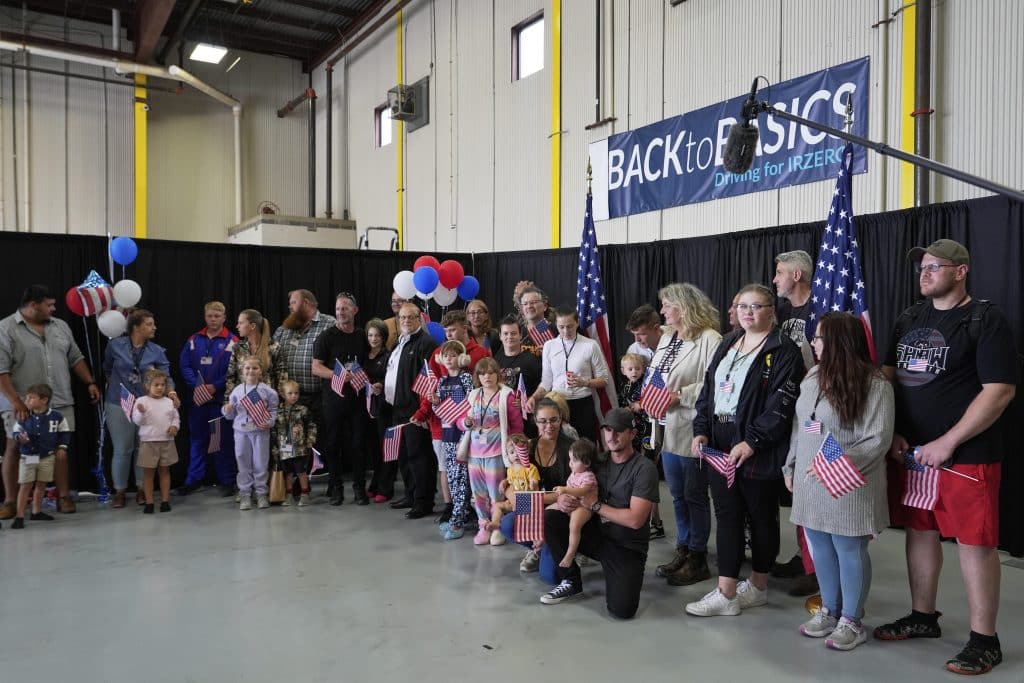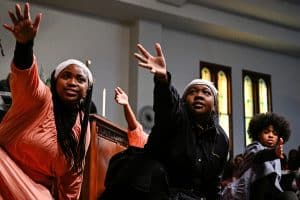A nearly 40-year-long public-private partnership between the Episcopal Church in the United States and the federal government to resettle and support immigrants will end this year.
Presiding Bishop Sean Rowe, leader of U.S. Episcopal, announced the program would end after the Trump Administration said it would give priority “fast-track” status to any South African white Afrikaners who wished to come to the United States.
“It has been painful to watch one group of refugees, selected in a highly unusual manner, receive preferential treatment over many others who have been waiting in refugee camps or dangerous conditions for years,” Rowe said in a May 12 announcement.
Between now and September 30, some Episcopal Migration Ministries positions will be eliminated; though Rowe said no positions had been immediately cut.
Impacted employees would have outplacement resources and would receive generous severance packages funding by the church – not the federal government, the announcement said.
“I am saddened and ashamed that many of the refugees who are being denied entrance to the United States are brave people who worked alongside our military in Iraq and Afghanistan and now face danger at home because of their service to our country,” Rowe said in the letter.
Earlier in May, the government informed Episcopal Migration Ministries that to continue its grant funding relationship, the church would need to resettle white South Afrikaners, whom the Trump Administration has classified as “refugees.”
“I’m proud of the Presiding Bishop’s decision not to assist with the resettling of white South Afrikans. As a church, we have a duty to speak out against injustice in hopes of achieving the type of reconciliation and restitution that brings our world a little bit closer to where it should be,” said The Very Reverend Jon Stratton, dean and rector of the Cathedral Church of the Nativity in Bethlehem, Northampton County.
READ: Pennsylvania Immigrant Rights Advocates Urge Passage of the American Dream and Promise Act
The Episcopal Church received about $50 million in annual funding through federal grants, the announcement said, which represented about 97% of Episcopal Migration Ministries funding.
“In light of our church’s steadfast commitment to racial justice and reconciliation and our historic ties with the Anglican Church of Southern Africa, we are not able to take this step. Accordingly we have determined that, by the end of the federal fiscal year we will conclude our refugee resettlement grant agreements with the U.S. federal government,” Rowe said.
According to the Episcopal Church announcement, more than 110,000 refugees, “many of whom are now American citizens and beloved members of our communities,” have been helped by the partnership program.

Rowe said during this transition period, the church has asked the federal government to work toward a mutual agreement to “wind down all federally funded services … by September.”
The church is seeking other ways to support migrants and refugees through local diocesan partnerships, its global connections, continued financial and arrival support for refugees and fundraising, Rowe said.
“I support the Presiding Bishop’s decision that the Episcopal Church will conclude its agreement with federal refugee resettlement programs … Sometimes that work will overlap with the interests of our political leaders and other times it won’t,” said the Rev. Daniel T. Moore, rector of St. Paul’s Episcopal Church in Doylestown.
Nativity is an active community on Bethlehem’s Southside, where there is a large Spanish-speaking community. Before the coronavirus pandemic, the church launched Spanish and bi-lingual services to add to its community outreach.
On June 11, ICE raids on Bethlehem’s Southside detained 17 people at a construction work site, according to various Lehigh Valley news reports, including Lehigh University’s student newspaper The Brown and White.
“Although I’m not exactly sure how this particular decision will affect the Lehigh Valley or the local church that I serve, I do know that the anti-immigrant policies of the current administration are sowing a lot of fear in my community,” Stratton said. “Fear to move freely. Fear of going to work. Fear, even, to go to church.”






